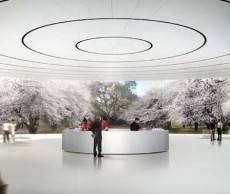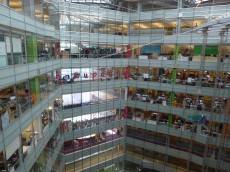February 4, 2014
Arup announces first Manchester office relocation in over 40 years
 Arup has announced it is to take 20,000 sq ft of Grade A office space at the Carlyle Group’s Three Piccadilly Place in Manchester. The TSK Group has been appointed to design and deliver the engineering and property consultancy’s first new Manchester office relocation in over 40 years. Three Piccadilly Place comprises 190,000 sq ft of flexible workspace over 11 floors, with 9,300 sq ft of retail space on the ground floor. Keith Rudd, Arup Director and leader of Arup’s Manchester office explained: “The relocation has been a major decision, driven by the growth and breadth of services we now offer across a range of sectors. As an employee owned firm, it’s important we have the right environment to attract and retain the best people, to enable us to continue to deliver great work for our clients.” (more…)
Arup has announced it is to take 20,000 sq ft of Grade A office space at the Carlyle Group’s Three Piccadilly Place in Manchester. The TSK Group has been appointed to design and deliver the engineering and property consultancy’s first new Manchester office relocation in over 40 years. Three Piccadilly Place comprises 190,000 sq ft of flexible workspace over 11 floors, with 9,300 sq ft of retail space on the ground floor. Keith Rudd, Arup Director and leader of Arup’s Manchester office explained: “The relocation has been a major decision, driven by the growth and breadth of services we now offer across a range of sectors. As an employee owned firm, it’s important we have the right environment to attract and retain the best people, to enable us to continue to deliver great work for our clients.” (more…)


























January 27, 2014
Latest generation Y survey reflects characteristically idealistic thinking of youth
by Sara Bean • Comment, News, Workplace
Maybe it’s the cynicism of middle age, but the most recent exploration of arguably, the most over-analysed cohort of workers in history – Generation Y – seems to reflect the archetypal idealistic thinking of youth. For example, while most Millennials (74%) believe business is having a positive impact on society by generating jobs (48%) and increasing prosperity (71%), they think it can do much more to address society’s challenges in the areas of most concern: resource scarcity (68%), climate change (65%) and income equality (64%). And quelle surprise, 50 per cent of Millennials surveyed wanted to work for a business with ethical practices. You have to wonder wouldn’t an examination of the hopes and aspirations of the last couple of generations of younger workers reveal similar ideologies, albeit without the benefit of their digital sophistication? (more…)